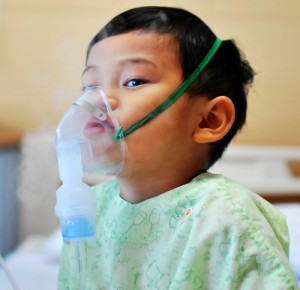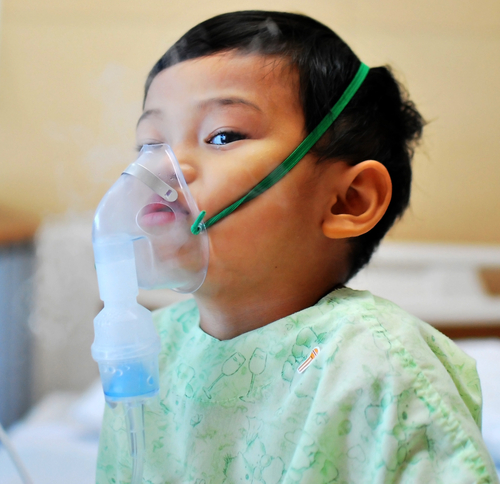 An editorial published recently in JAMA Pediatrics explained why two randomized clinical trials to assess the therapeutic efficacy of hypertonic saline treatment on children with bronchiolitis reached contradictory results. One study concluded that the use of hypertonic saline is very helpful, improving patients’ condition clinically and reducing hospitalizations. Another study concluded that patients who received the treatment with hypertonic saline had less improvement compared with the normal saline group. The article was titled as “The Tale of 2 Trials: Disentangling Contradictory Evidence on Hypertonic Saline for Acute Bronchiolitis.”
An editorial published recently in JAMA Pediatrics explained why two randomized clinical trials to assess the therapeutic efficacy of hypertonic saline treatment on children with bronchiolitis reached contradictory results. One study concluded that the use of hypertonic saline is very helpful, improving patients’ condition clinically and reducing hospitalizations. Another study concluded that patients who received the treatment with hypertonic saline had less improvement compared with the normal saline group. The article was titled as “The Tale of 2 Trials: Disentangling Contradictory Evidence on Hypertonic Saline for Acute Bronchiolitis.”
In the study by Florin et al, after partaking in a trial of nebulized albuterol, 62 patients with bronchiolitis and persistent respiratory distress were randomized into two groups, receiving either 3% hypertonic saline or normal saline. The change in respiratory distress at 1 hour after intervention was assessed as the primary endpoint, using the Respiratory Assessment Change Score (RACS). The result showed that the hypertonic saline group had less improvement in median RACS compared with the normal saline group.
In the study by Wu et al, 408 patients with bronchiolitis who received nebulized albuterol treatment were randomized into two groups, receiving either 3% hypertonic saline or normal saline up to 3 times in the emergency department. The primary endpoints were set as the rate of hospital admission, length of stay for admitted patients, and the Respiratory Distress Assessment Instrument (RDAI) score. The rate of hospital admission was lower in hypertonic saline group (28.9%) than the normal saline group (42.6%). No significant difference were found in the length of stay or RDAI score between two groups.
In the study by Florin et al, researchers examined the efficacy of a single dose of hypertonic saline in a small treatment groups. In the Wu et al study, researchers failed to recruit the planned number of patients, limiting some of the statistical analysis. In addition, there was no criteria describing the minimum or maximum severity at the entry of the study, which could have affected the applicability of the results to the patients with moderate or severe disease.
“Evaluating the efficacy of hypertonic saline in the treatment of bronchiolitis is not an easy task. As seen in these two RCTs, as well as in other studies to date, the optimal concentration, dosing frequency, and duration of therapy of hypertonic saline still need to be determined,” wrote Sim Grewal, M.D., of the University of Alberta, Canada, and Terry P. Klassen, M.D., of the University of Manitoba, Canada.
The article for the Florin et al study: http://archpedi.jamanetwork.com/article.aspx?articleid=1874076
The article for the Wu et al study: http://archpedi.jamanetwork.com/article.aspx?articleid=1874078

